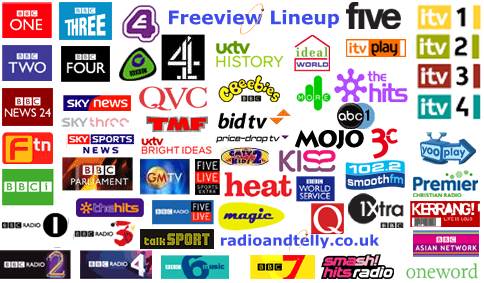 Project Britain
Project Britain
British Life and Culture
by Mandy Barrow
- Search our Site
- Project Britain
- Calendars
- Facts and figures
- London
- Great Britain
- Union Flag
- A-Z of Britain
- Customs & traditions
- Britain today
- Daily Life
- Money
- Etiquette
- Monarchy
- Government
- Education
- Tourist Information
- Food and drink
- Sports and leisure
- History
- Kings and Queens
- Superstitions
- Glossary
|
Radio, Television and Newspapers
|
|
|
Find out about how British people spend their Leisure Time The three public bodies responsible for television and radio throughout Britain are:
Television (Telly)
Television viewing is Britain's most popular leisure pastime. About 96 per cent of the population of Britain have television in their homes. In 1999, 13% of households had satellite television and 9% cable television. It is estimated that about 10 per cent of household have two or more sets. The average viewing time per person is over 25 hours a week. There are five main channels in Britain:
The BBC channels are commercial free while the other three have commercials. All the channels offer a mixture of drama, light entertainment, films, sport, educational, children’s and religious programmes, news and current affairs, and documentaries. The BBC has been providing regular television broadcasts since 1936. BBC television productions come from main studios at the Television Centre in west London and other studios in various parts of London. ITV1 is the most popular commercial television channel in Britain, watched on average by 45 million people every week. Digital Broadcasting The country is moving over to digital broadcasting, and the present analogue services will stop in 2012.
You can buy a digital box (costs about £40 to £60 and plugs into TV) or a new TV. Additional free digital services include the existing channels BBC1, BBC2, ITV, Channel 4 and Channel 5, and adds BBC3, BBC4, BBC News 24, as well as ITV2, ITV3, ITV4 and a whole load of other channels including the American Channel ABC1. and the BBC's digital channels BBC6 and BBC7. There are about 30 channels in all, known as 'Freeview' channels.
You can also get a wide range of digital radio channels, so you can 'watch' radio on your TV! Many people have to get a better aerial to receive digital television. Cable and Satellite television We also have cable and satellite television. The largest satellite programmer is BSkyB (British Sky Broadcasting). There are about 300 channels including some American ones like CNN. The kids’ channels include Fox Kids, Trouble TV, CBBC, and Nick Jr. Cable TV is provided by NTL, Telewest, or Cable and Wireless. It has about 200 channels and the channels are very similar to Satellite TV. Television Programmes we watch Many television programmes are about wildlife, animals, holidays, cooking and gardening. DIY programs - DIY means do it yourself. Drama and sitcoms Soaps - a series of television or radio programmes about the lives and problems of a particular group of characters. They run over a long period and are broadcast several times every week. The most popular are "Eastenders", an often shocking drama about life in East London, and "Coronation Street", which is about life in Northern Britain. We also watch "Emmerdale", about life in a farming village and two Australian soaps, "Neighbours" and "Home and Away". Reality programmes These type of programmes involve filming normal people in their every-day lives or putting several people in a specially built house where they can be filmed 24 hours-a-day and giving them challenges to do. The most famous of these is Big Brother, you can find out more information at: People in the house vote on who should be kicked out of the house and in the end the viewers vote for the winner who receives a large amount of money American Programmes We watch a lot of American programs including Friends, Will and Grace, Frasier, ER as well as Sabrina the Teenage Witch, The Simpsons and The Fresh Prince of Bel Air. TV Licence We pay to watch the telly in the UK, no matter how much or how little we watch TV. In the UK, if you use a TV or any other device to receive or record TV programmes (for example, a VCR, set-top box, DVD recorder or PC with a broadcast card) - you need a TV Licence. You are required by law to have one. Currently a TV Licence costs £142.50 for colour and £48.00 for black and white. (last updated April 2009) There are no advertisements during BBC programmes. Radio People in Britain listen to an average 15 hours and 50 minutes of radio each week. The BBC has five national radio networks which together transmit all types of music, news, current affairs, drama, education, sport and a range of feature programmes. There are also 39 BBC local radio stations, and national radio services in Scotland, Wales and Northern Ireland. Newspapers There are about 130 daily and Sunday newspapers, over 2,000 weekly newspapers and some 7,000 periodical publications in Britain. The press in Britain is free to comment on matters of public interest, subject to law. Daily Newspapers sell 322 copies per 1000 people in the UK, the eighth highest rate in the world. British newspapers include the following: |
|
 © Copyright - please read © Copyright - please read All the materials on these pages are free for homework and classroom use only. You may not redistribute, sell or place the content of this page on any other website or blog without written permission from the Mandy Barrow. |
© Copyright Mandy Barrow 2014
Mandy is the creator of the Woodlands Resources section of the Woodlands Junior website.
The two websites projectbritain.com and primaryhomeworkhelp.co.uk are the new homes for the Woodlands Resources.
Mandy left Woodlands in 2003 to work in Kent schools as an ICT Consultant.
She now teaches computers at The Granville School and St. John's Primary School in Sevenoaks Kent.
Woodlands Junior Homework Help new website
 People in Britain watch on average 25 hours of TV every week.
People in Britain watch on average 25 hours of TV every week.  two national commercial-free BBC networks,
two national commercial-free BBC networks,  Freeview
Freeview
